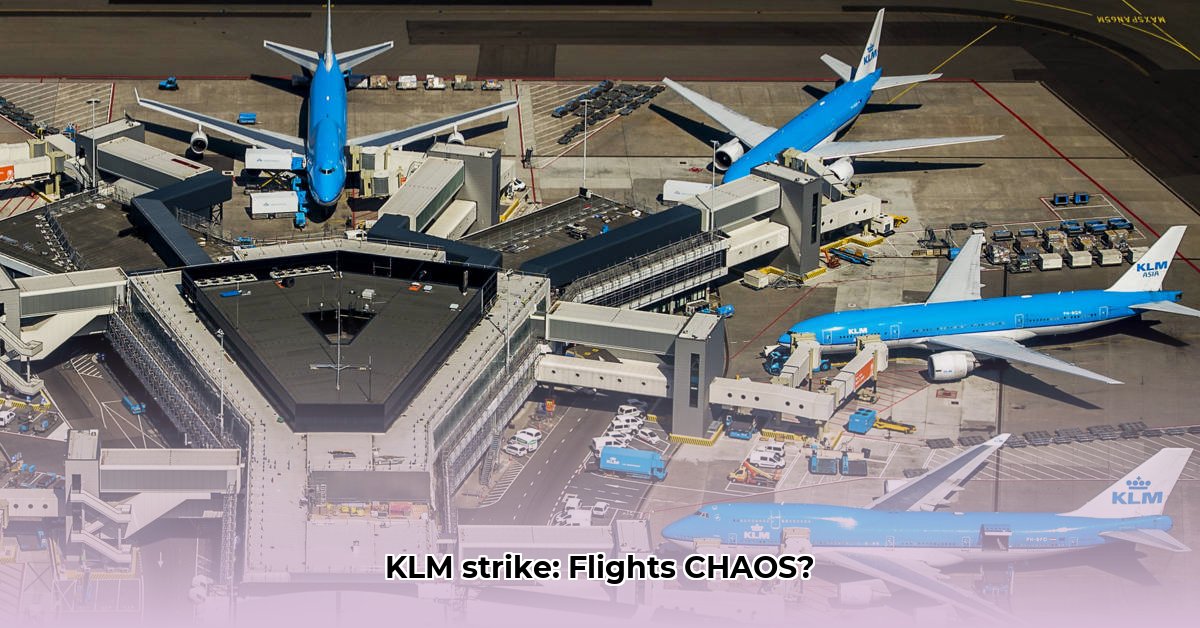
Staking KLM Ground Staff: A Battle for Better Pay and Working Conditions
The KLM ground staff strike in July 2025 wasn't a mere inconvenience; it was a potent symbol of the ongoing struggle for fair wages and decent working conditions within the demanding airline industry. Orchestrated by the FNV union, the 24-hour strike underscored the widening gap between employee expectations and KLM's capacity, or willingness, to meet them. The swift escalation to a court battle highlighted the immense stakes involved in this clash. Did the strike achieve its aims, and what lessons can be learned?
The Workers' Plea: Fairer Pay, Greater Respect
At the heart of the dispute lay a simple, yet deeply felt, demand: ground staff – the unsung heroes handling luggage, guiding passengers, and ensuring the smooth functioning of airport operations – sought a pay increase to match the rising cost of living. The FNV argued persuasively that KLM’s financial challenges shouldn't be borne solely by the employees whose tireless efforts keep the airline operational. The union voiced its members' feelings of undervaluation, emphasizing the demanding nature of their roles and asserting that their dedication deserved better recognition. Many workers felt overlooked and undervalued, intensifying their desire for change. How much more would a fair wage have cost KLM, and was it truly unaffordable?
KLM's Response: Navigating Financial Realities
KLM, however, presented a counter-narrative. Faced with escalating fuel costs, increased airport charges, and lingering economic uncertainties, the airline depicted a scenario of financial vulnerability. They argued that the requested wage increases were unsustainable, potentially jeopardizing the airline's financial stability. This created a difficult balancing act: how could KLM address employee needs without compromising its long-term viability? This situation mirrors the challenges frequently faced by businesses navigating competitive and unpredictable markets. Was KLM's financial situation accurately represented, and were other cost-cutting options explored?
The airline's management likely found itself in a precarious position, pressured by employee demands deemed economically unfeasible and the potential damage to reputation and operational capacity caused by industrial action. They probably also considered the implications for future labor relations and the potential for setting a precedent.
The Legal Showdown: A Clash of Rights
KLM's swift move to seek a court injunction against the strike intensified the conflict. The legal battle transcended mere wages; it became a pivotal test of the right to strike. The outcome would establish a significant precedent for future labor disputes within the airline industry, both domestically and potentially internationally. This legal manoeuvre heightened tensions and placed immense pressure on both sides to secure a favourable judgment. The legal arguments focused on the balance between management's right to manage the business effectively and employees' right to fair compensation and collective action.
KLM's legal strategy could be viewed as a high-stakes gamble. While aiming to minimise operational disruptions and financial losses, it risked damaging the airline's public image. Conversely, the FNV's decision to strike, despite the legal risks, demonstrated its unwavering commitment to representing its members' interests.
The Wider Impact: Disruption and Dialogue
The strike's ramifications extended beyond KLM and its ground staff. Thousands of passengers endured flight delays and cancellations, highlighting the intricate interconnectivity of the global travel system and the far-reaching consequences of industrial action. It also brought into sharper focus broader questions regarding fair compensation and employee rights within the aviation sector. The disruption caused substantial inconvenience to travelers, impacting business and personal plans alike. This widespread impact likely encouraged the Dutch government to monitor the situation closely and potentially consider reviewing existing labor laws applicable to the airline industry.
Long-Term Reflections and Future Directions
The KLM ground staff strike serves as a compelling case study illustrating the complex interplay between labor, management, and the legal framework within the aviation industry. Both KLM and the FNV must learn from this experience. For KLM, reviewing compensation strategies to ensure sustainability and fair reflection of employee value is crucial. Proactive communication and conflict resolution mechanisms are paramount to prevent future disputes. For the FNV, refining its negotiation strategies and maximizing its members' collective bargaining power is essential. Ongoing research and review of the legal outcome will certainly influence future actions and negotiations in the aviation sector.
The strike wasn't solely about wages; it highlighted the need for open communication, mutual respect, and a fair balance between employer needs and employee rights. While the long-term consequences remain to be seen, the event underscores the ongoing debate surrounding fair compensation within the aviation sector globally, demanding increased attention.
How to Negotiate Fair Wages in Financially Strained Airlines
The KLM strike highlights a critical challenge: negotiating fair wages for aviation ground staff in financially constrained airlines. It requires a delicate balancing act of employee advocacy and employer understanding.
Key Steps to Effective Negotiation:
- Thorough Research: Analyze industry salary benchmarks, considering experience, location, and skills. What is the fair market rate?
- Quantify Your Value: Demonstrate your skills and quantify your contributions to the airline's bottom line.
- Strategic Negotiation: Present a reasonable counter-offer; be assertive but professional; be prepared to compromise fairly.
- Collective Bargaining: A united front strengthens your negotiating position.
- Long-Term Solutions: Explore cost-saving measures that don't compromise employee income.
- Alternative Compensation: Consider performance-based bonuses or profit-sharing.
- Win-Win Approach: Frame demands as beneficial to both the airline and employees.
- Legal Recourse: Know your rights and seek legal counsel if negotiations fail.
The KLM strike serves as a stark reminder of the high cost of negotiation failure – financial losses, reputational damage, and widespread disruption. Proactive negotiation and strong employee representation are essential.